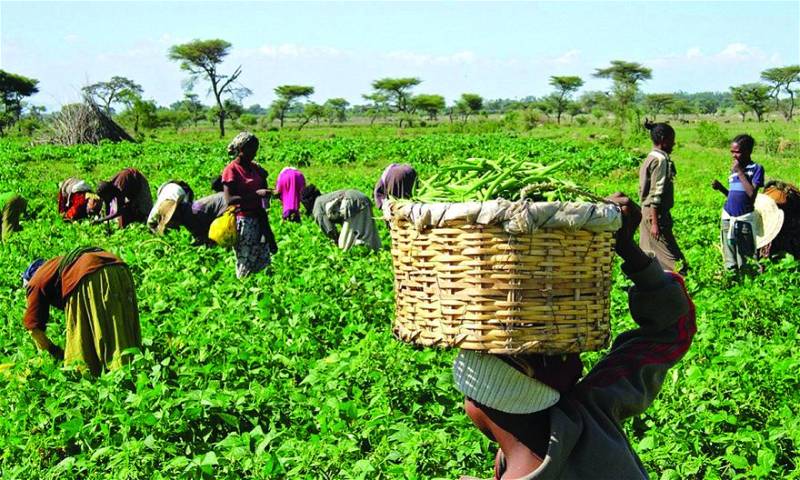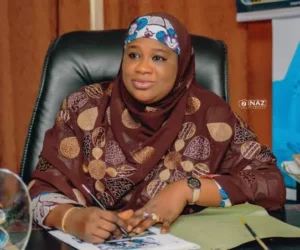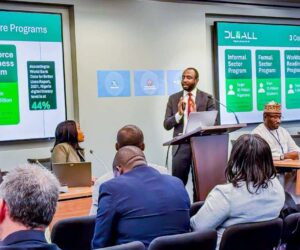1
LAGOS – As Nigeria reflects on its journey toward development and self-reliance, the call to redefine agriculture as the true driver of economic independence and food security has grown louder.
Sixty-five years after political independence, experts agree that Nigeria’s journey toward true sovereignty will not be complete until agriculture becomes the engine of economic independence.
From irrigation and mechanisation to policy reform and value-chain industrialisation, they argued that the nation’s next phase of progress depends on what it grows, processes, and exports.
Experts in separate interviews with Daily Independent said that the next phase of the country’s growth must go beyond policy rhetoric to decisive action — one that positions agriculture as both a wealth-creating and nation-securing enterprise.
Adebowale Onafowora, Founder and MD of BIC Farms Concepts, argued that achieving food security will require a coordinated, zero-tolerance approach to inefficiency.
He said the government must act as a National Infrastructure Grid for Agriculture, focusing on the construction of cold-chain neta “derisking agent” by funding works and agro-industrial parks with dedicated power and water access in every major production zone. “This is a capital project, not a social programme,” Onafowora emphasised.
He also called for the activation of three million hectares of irrigated land across Nigeria, saying it is “the single fastest way to triple yields, achieve all-year-round farming, and secure the nation against climate change.”
For him, the government’s reform of land tenure and security of farmland must go hand-in-hand with tackling insecurity, noting that it has continued to displace farmers and disrupt production.
“Implement a single-window platform for land registration to facilitate easier access to land and credit for serious commercial investors. Simultaneously, tackle the insecurity crisis with definitive force to protect productive land and build investor confidence,” he added.
Onafowora noted that while the government must create the enabling environment, the private sector must serve as the execution engine of agricultural transformation.
He urged agribusinesses to lead value chain industrialisation by moving from raw commodity exports to processing finished and semi-finished products for domestic and regional markets.
“Tax breaks and single-digit interest credit facilities must be tied to value-addition performance,” he suggested.
He also identified agri-tech, mechanisation, and human capital development as critical drivers for productivity.
“Nigeria cannot afford more years of missed opportunities. The path to economic independence is not under the sea; it is under the soil,” he declared.
Oba Dokun Thompson, the Oloni of Eti-Oni in Osun State and the founder of the International Cocoa Diplomacy (ICD), underscored the need for Nigeria to balance modern innovation with indigenous wisdom.
He noted that while agriculture has moved into a data-driven era powered by artificial intelligence, precision tools, and sustainability protocols, the country must be careful not to lose its sovereignty to imported technologies.
“We are moving into an era where agriculture may be colonised through adoption of certain tools that will forever lock us into arrangements that will make us lose our independence to achieve food security,” Thompson warned.
He advised that Nigeria should explore its regenerative traditional agricultural practices that can deliver high-value results using the country’s natural biodiversity and organic crops, which command premium prices globally for their health and environmental benefits.
According to him, there are untapped opportunities in agricultural insurance, green bonds, and climate funds that can help unlock capital for farmers.
“Corporate bodies should also see their participation in funding agricultural research institutes as an investment with measurable return on investment, not just a corporate social responsibility gesture,” he said.
While acknowledging the government’s role in providing policies and infrastructure, Oba Thompson stressed that collaboration is key.
“The private sector usually guides the government into what is practical and feasible, so we hope to see more partnerships with not just the private sector but also the people for very productive and fruitful years ahead,” he said.
For Dr. Abiodun Onalaja, CEO of Hyst Global Business Limited and producer of Okun Rice, Nigeria’s agricultural transformation will require targeted input distribution and strategic private sector investment closer to production zones.
“Reforming input distribution by shifting from blanket subsidies to targeted vouchers would ensure farmers actually benefit while encouraging private dealers to thrive,” he said.
Onalaja also called on the private sector to build processing plants closer to farms, expand contract farming arrangements with smallholder farmers, and scale up digital platforms for aggregation and market access.
He noted that development partners can support the effort by deploying blended finance and guarantees that de-risk agricultural lending.
Reflecting on the country’s agricultural journey, Onalaja said Nigeria’s agriculture remains a story of “what could be.”
However, he expressed optimism that the right mix of reforms, public-private collaboration, and climate-smart investments could make the sector the bedrock of true independence.
“A Nigeria that feeds itself, creates millions of agro-industrial jobs, and exports finished products instead of raw crops is not a pipe dream. It is a choice. The future of Nigeria’s independence will not be written in oil, but in the soil.”
Dr. Olukayode Oyeleye, an agribusiness strategist, stressed that Nigeria’s growing population — now over 200 million — demands an agricultural system capable of producing food in large quantities across the country’s diverse agro-ecological zones.
“More attention should be paid to increasing the production of root crops, tubers, assorted grains, perishables, spices, livestock, and fish.”
He noted that smallholder farming alone cannot sustain Nigeria’s food needs.
“Government must deliberately partner with and incentivise private sector commercial farmers to ensure large-scale production,” he added.
To stabilise supply and prices, Oyeleye urged the government to step up post-harvest management and ensure better shelf life for perishables.
He also called for political convergence and unity across party lines to ensure effective implementation of agricultural policies.
“Generational shift has now become obvious. The government must reckon with the younger generation as those who will perpetuate the business of farming. Strong and robust policies have to target these youthful ones,” he noted, emphasising the importance of finance and insurance packages tailored to farmers.
For Henry Olatujoye, a former National President of the National Palm Produce Association of Nigeria (NPPAN), allowing the market to operate freely has already begun yielding positive results for farmers and the economy.
He argued that the government’s current free-market policy has helped stabilise prices, boost local production, and reduce dependence on imports.
“When you allow demand and supply to determine price, farmers earn more for their efforts,” he said.
Olatujoye pointed out that while commodity prices were extremely high in 2024, they have now adjusted, with rice dropping from N100,000 to N55,000 and garri from N1,400 to N515 per measure in 2025.
“This shows that the government policy of allowing a free market to operate is paying off,” he said.
He also credited the policy for improving Nigeria’s foreign exchange position. “The dollar has lost close to N45 in one month because importation of consumables is no longer attractive. People are now discouraged from importing what can be produced locally,” he said, adding that the non-oil sector’s growing contribution to GDP is a sign that the economy is moving in the right direction.
“If we continue in this direction, we will achieve independence in food and economic security,” Olatujoye noted.








